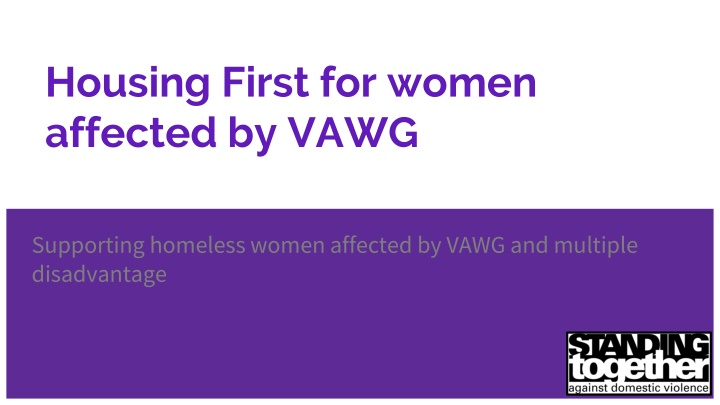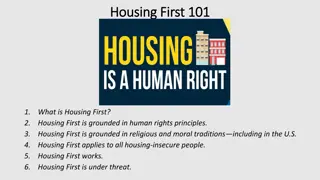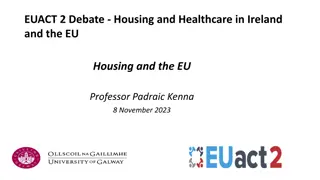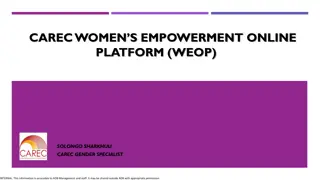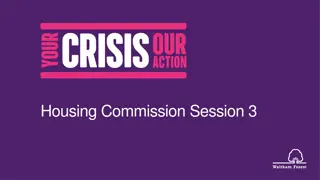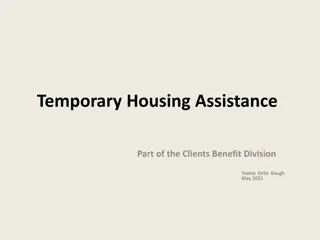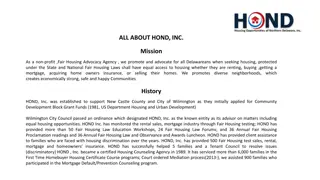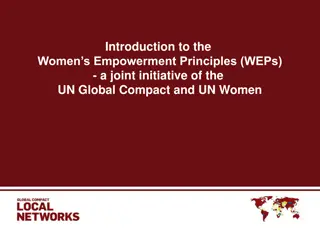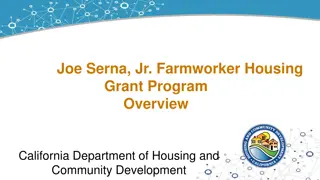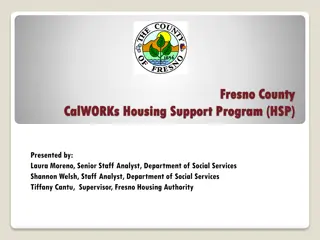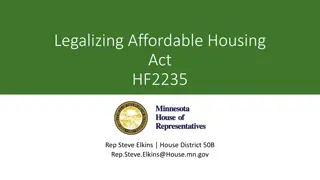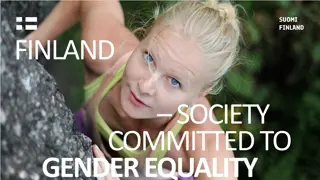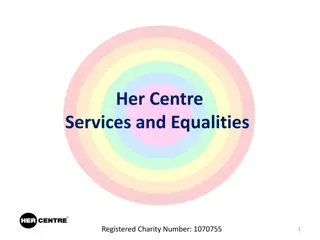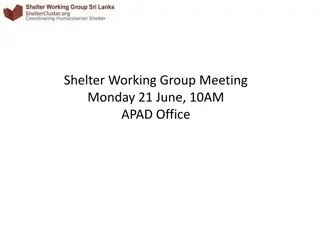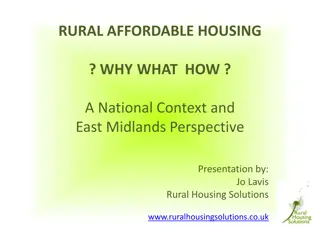Housing First for Women Affected by VAWG - Support and Empowerment
Providing housing-first support for homeless women affected by VAWG and multiple disadvantages. The project offers independent, stable housing alongside intensive, person-centered support to help women stabilize, build confidence, and address various challenges in their lives. Specialized workers pilot the Housing First approach with a focus on trust-building, tenancy support, and risk management related to VAWG. The project aims to serve women facing complex trauma, stigma, and barriers to accessing traditional services.
Uploaded on Oct 01, 2024 | 2 Views
Download Presentation

Please find below an Image/Link to download the presentation.
The content on the website is provided AS IS for your information and personal use only. It may not be sold, licensed, or shared on other websites without obtaining consent from the author.If you encounter any issues during the download, it is possible that the publisher has removed the file from their server.
You are allowed to download the files provided on this website for personal or commercial use, subject to the condition that they are used lawfully. All files are the property of their respective owners.
The content on the website is provided AS IS for your information and personal use only. It may not be sold, licensed, or shared on other websites without obtaining consent from the author.
E N D
Presentation Transcript
Housing First for women affected by VAWG Supporting homeless women affected by VAWG and multiple disadvantage
The Project Funded by the MHCLG for women with experiences of long term/recurrent homelessness, multiple disadvantage, and any form of VAWG. This client group face multiple barriers to accessing housing and support: Often lifelong experience of VAWG impact of trauma on women Turned away by local authorities Homelessness services such as hostels typically male dominated environments. Domestic abuse support e.g. IDVA services under resourced and often don t have flexibility to support this client group. Bad experiences/stigma and shame from engaging with services in the past women find it hard to trust/engage with services.
What is Housing First? Clients have experienced long term or chronic homelessness - not traditionally housing ready. Needs a permanent offer of independent, stable housing - housing is a human right. Intensive, person centered support enables clients to maintain tenancy and begin recovery. Only condition placed on clients is willingness to sustain a tenancy. Small caseloads - workers support no more than 5-7 clients. Promotes client choice and self determination. Underpinned by set of principles - fidelity model.
Housing First support Two specialist workers will support ten women, piloting a Housing First approach with this client group. Workers will do pre engagement work to build trusting, supportive relationships with women, support women into new tenancies, provide intensive support to help them maintain those tenancies and address other needs, and provide specialist risk management and safety planning around VAWG. Having their own tenancy gives women a platform to stabilize, be safe, build confidence and address other issues in their lives.
Who are the client group? Women who have experienced multiple disadvantage; childhood trauma, homelessness, extensive violence and abuse across the life course, substance use, poor mental health, separation from children, and encounters with the criminal justice system. These experiences are interrelated and reinforcing, resulting in complex trauma, low self esteem and entrenched mental health issues. Experience stigma and shame; woman, homeless, sex worker, drug user etc. This client group are likely to have had negative experiences accessing services in the past.
What we need from you Support and a commitment from RSLs in X to provide units for the women the project plans to support. Currently only 50% of Housing First Projects in England have access to social housing. Social housing tenancies provide the stability and flexibility needed for Housing First to work. Single tenancies - studio or 1 bed units needed. Stability and security - as permanent as possible. A flexible and creative approach to sign up, number of offers etc.
Why get involved? Only a small number of units needed. Intensive support provided to help women manage tenancies. Rent payment - rent arrears much less likely. A reduction in costly evictions and abandonments - around 70%-90% of clients maintain their tenancy. Changes to welfare benefits. Corporate social responsibility - supporting vulnerable women. Leaders in innovation. Links to DAHA
Questions you might have. What about ASB? What happens when the support stops? Tenancy sustainment? What will it cost?
